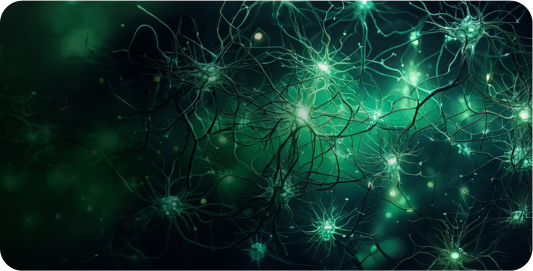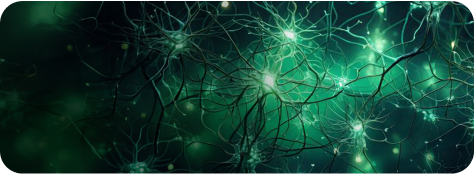
A Robust Pipeline Powered by Brave Science
Areas of investigation include potential new treatments in neurology, neuroendocrinology, and neuropsychiatry. Our pipeline exemplifies scientific excellence that addresses unmet clinical needs.
Filter By
-
PROGRAM (TARGET)
valbenazine*
(VMAT2 Inhibitor)THERAPEUTIC AREA
Neurology
INDICATION
Phase 1
Phase 2
Phase 3
-
PROGRAM (TARGET)
osavampator/NBI-'845±
(AMPA)THERAPEUTIC AREA
Neuropsychiatry
Phase 1
Phase 2
Phase 3
-
PROGRAM (TARGET)
NBI-'568‖
(M4 Agonist)THERAPEUTIC AREA
Neuropsychiatry
INDICATION
Phase 1
Phase 2
Phase 3
PROGRAM (TARGET)
NBI-'570‖
(M1/M4 Agonist)THERAPEUTIC AREA
Neuropsychiatry
INDICATION
Phase 1
Phase 2
Phase 3
-
PROGRAM (TARGET)
NBI-'770§
(NMDA NR2B NAM)THERAPEUTIC AREA
Neuropsychiatry
INDICATION
Phase 1
Phase 2
Phase 3
-
PROGRAM (TARGET)
NBI-'567‖,¶
(M1 Agonist)THERAPEUTIC AREA
Neuropsychiatry
INDICATION
CNS IndicationsPhase 1
Phase 2
Phase 3
PROGRAM (TARGET)
NBI-'569‖
(M4 Agonist)THERAPEUTIC AREA
Neuropsychiatry
INDICATION
CNS IndicationsPhase 1
Phase 2
Phase 3
PROGRAM (TARGET)
NBI-'890
(VMAT2 inhibitor)THERAPEUTIC AREA
Neuropsychiatry
INDICATION
CNS IndicationsPhase 1
Phase 2
Phase 3
PROGRAM (TARGET)
NBI-'675
(VMAT2 Inhibitor)THERAPEUTIC AREA
Neuropsychiatry
INDICATION
CNS IndicationsPhase 1
Phase 2
Phase 3
-
PROGRAM (TARGET)
NBI-'986
(M4 Antagonist)THERAPEUTIC AREA
Neurology
INDICATION
Phase 1
Phase 2
Phase 3
-
PROGRAM (TARGET)
NBI-'355
(Nav1.2/1.6)THERAPEUTIC AREA
Neurology
INDICATION
Phase 1
Phase 2
Phase 3
Neurocrine Biosciences has global rights unless otherwise noted.
*Mitsubishi Tanabe Pharma Corporation has commercialization rights in Japan and other select Asian markets.
±Takeda Pharmaceutical Company Limited has retained rights in Japan.
§Licensed from Takeda Pharmaceutical Company Limited.
‖Licensed from Nxera Pharma (formerly Sosei Heptares).
¶Nxera Pharma (formerly Sosei Heptares) has retained rights in Japan; Neurocrine Biosciences may opt-in to a 50:50 cost and revenue share upon certain development events.


Investor Relations


Clinical Studies

